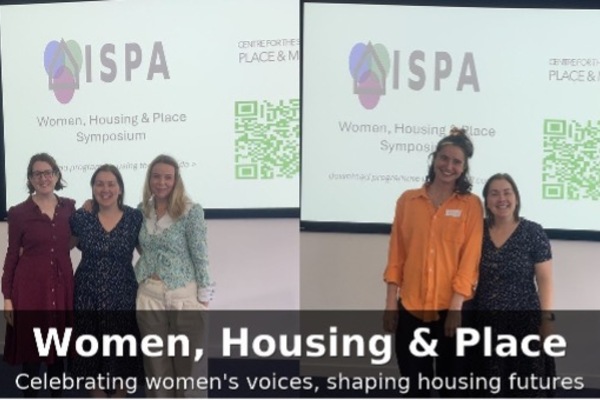Home and Epigenome: DNA methylation's role in associations between housing quality and depression
Faye Sanders - University of Bath
At the Housing Studies Association (HSA) 2024 conference, I was honoured to present our research investigating the associations between poor housing quality, epigenetics, and depression. Our study found that mothers' experiences of poor housing quality were linked to depressive symptoms, and this association was partly explained by levels of DNA methylation. DNA methylation is a process where methyl groups bind to DNA, influencing gene expression. While it has long been established that housing quality affects mental health, our study was the first to identify the biological mechanisms underlying this relationship. Presenting this research at HSA 2024 was a fantastic opportunity to share our findings with leaders in the housing research community.
The Q&A section of the keynote featured particularly insightful discussions, which I thoroughly enjoyed. One question addressed whether the inclusion of biological evidence contributed to the increased media attention our study received. This is a question I have often reflected on throughout the project's journey. There is a vast body of literature examining the relationship between housing and mental health across various contexts. Our findings do not undermine this existing research but rather complement it by shedding light on the biological mechanisms that may explain this relationship. It is important to note that there are numerous other mechanisms through which housing can affect health.
I believe the study's biological element played a significant role in generating media interest. Biological elements, such as DNA, often seem more tangible. Our understanding of mental health is still evolving, which can make it seem more abstract and disconnected. Additionally, self-reported measures of mental health are often criticized for a subjective bias. It is somewhat ironic that we perhaps expect a brain scan to tell us how we feel more accurately than we can ourselves. This is not to criticise the advancements of biological measurements of health, as they have hugely benefitted our understandings of these mechanisms. As an early-career researcher fascinated by what these technologies can uncover about our health, that comment is instead a note of reflection. However, this general scepticism surrounding subjective measures of health that we see across society may have led to the interpretation of our findings as being a "hard" form of evidence of associations between housing and health. However, by linking "objective" DNA methylation and "subjective" depressive symptoms in complex associations, our study demonstrates that a range of evidence can provide more comprehensive insights than any single aspect alone.
In conclusion, presenting at the HSA 2024 conference allowed us to reflect on the inclusion of biological data in housing and health research. While this area of research is incredibly exciting and novel, we must acknowledge the importance of subjective measures of health that have led us to this point. We should not turn away from using subjective measures, as they are crucial for assigning meaning to epigenetic signatures of health.






